What Do Mice Eat?
A lot of people associate mice with eating cheese, but we know that for optimal health, their diet should contain much more than this. Mice are omnivores, so they need a variety of different nutrients in their food. By giving your pet mouse a proper diet, you'll be helping it live a long and healthy life.
General Mouse Food Guidelines
It is common to find mouse food also advertised as feed for other pet rodents including rats, hamsters, and gerbils. These rodents all have similar dietary requirements, but not all of them are ideal for a mouse. Ingredients you should look for in mouse food may include:
- Mouse/rat pellets: Originally designed for laboratory mice and rats, rodent pellets or blocks contain the necessary vitamins, minerals, protein, and other essential nutrients that mice need. These are hard, brown blocks that are usually rectangular in shape. They are good for keeping your mouse's teeth trimmed as well as providing the bulk of nutrition that a mouse needs to stay healthy.
- Fruits: Mice enjoy and can eat a variety of different fruits. Some mice will develop preferences to certain items, but you can offer your mouse apples, pears, bananas, melons, peaches, plums, oranges, and berries just to name a few.
- Vegetables: There are also many fresh vegetable options that can be fed to mice. Broccoli, cabbage, Brussels sprouts, endive, carrots, bok choy/other Asian greens, celery, parsley, corn, beans, peas, and tomatoes can all be used.
Minimal dietary requirements are not the same as optimal dietary needs, so what is recommended for a laboratory mouse is most likely not what a pet mouse needs - 20% of a mouse's diet should be fruits and vegetables while 75% should be fortified pellets.
There is, unfortunately, little research that has been done on feeding a mouse for longevity and not just short-lived research purposes. Mice are typically recommended to receive about 2 grams of potassium, 3 grams of phosphorus, 5 grams of calcium, 0.5 grams of sodium, 35 milligrams of iron, 10 milligrams of manganese, and a variety of other vitamins and minerals per kilogram of food.
Seed mixes are routinely sold and used to feed mice, but a mouse will typically pick out its favorite items and not eat everything it should. These mixtures often have pellets or blocks and dried fruits and vegetables in them, but because the seeds are more appealing and tasty to a mouse, they'll avoid the things they should be eating and only eat what they want. This is why seed mixtures are not recommended for pet mice. Seeds should only be offered as a treat.
Fresh, clean water should also be provided to a mouse at all times. The fruits and vegetables will offer some hydration but a water bowl and/or bottle should also be available.
How Much and When to Feed Your Pet Mouse
Many mouse owners will simply fill a bowl with mouse food and refill it as necessary, but this is not ideal. A small bowl or plate with fresh food should instead be offered daily. Each day the uneaten food, especially the fresh fruits and vegetables, should be discarded to prevent your mouse from consuming spoiled food. A few large blocks or a small handful of pellets should be ample food for daily consumption of one mouse, in addition to a small amount of fruit and vegetable pieces. Allow your mouse to have some variety and rotate what types of fresh foods it eats. An occasional treat of cereal, seeds, or crackers are okay to offer, especially if you are trying to hand tame your mouse. Only about 5% of your mouse's diet should be treat-based.
Caloric intake requirements will vary greatly depending on your mouse's genetics and activity level as well as the food you feed. If your mouse is pregnant, nursing, or still growing, the food requirements will also likely increase.
What Shouldn't Mice Eat?
Despite the fact that mice may willingly eat something, there are foods that are not ideal for a mouse to consume. Foods high in fat and sugar such as candy, cookies, peanut butter, chocolate, and bacon may be popular with your pet mouse but are very bad for them. Some people will offer very small amounts of cooked pasta or bread, but cheese isn't usually a favorite food among mice, despite the popular belief.
RECOMMENDED NEWS
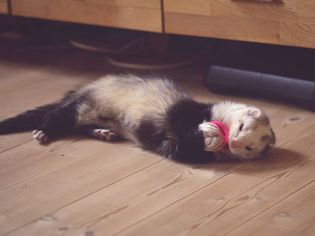
What Do Ferrets Like to Play With
Ferrets love to play so providing them with safe toys is a must but what are their favorite types o...
Read More →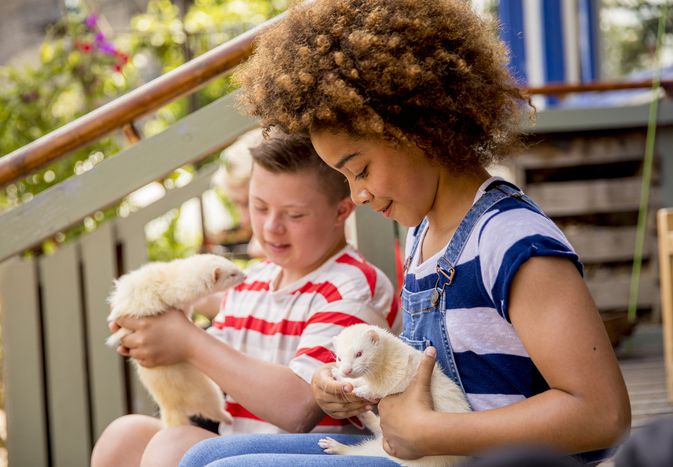
How to Care for a Pet Ferret
Ferrets are playful pets that are very entertaining to watch. These long, slender animals are smart...
Read More →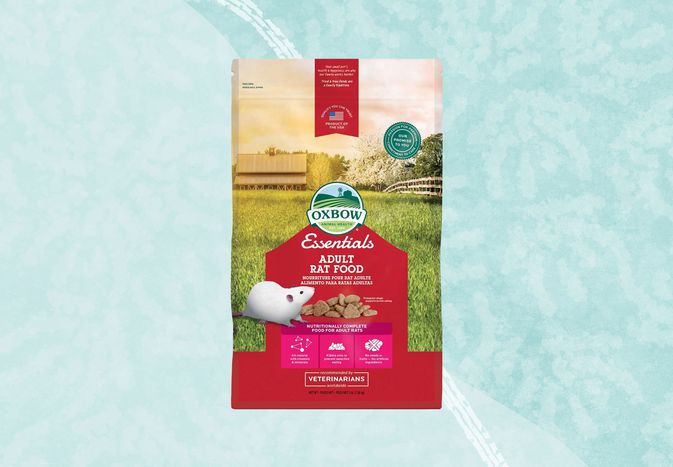
The 8 Best Foods for Pet Rats
Credit: The Spruce Pets / Lecia Landis Rats can be picky eaters who will opt for a fatty m...
Read More →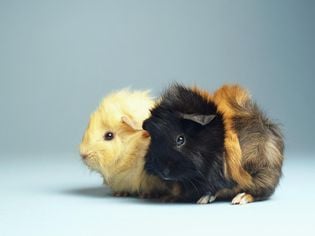
How to Care for a Pet Guinea Pig
Guinea pigs are a species of rodent that enjoys great popularity as an exotic pet. There are severa...
Read More →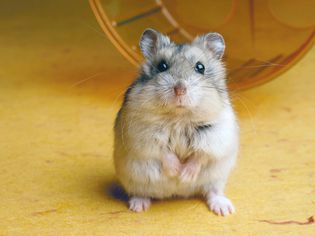
How to Stop Your Hamster From Biting
Hamsters do bite sometimes, though it'll typically only happen when they get scared. Most of th...
Read More →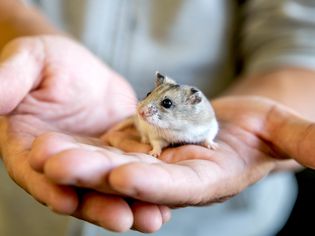
How to Train Your Hamster to Be Tame
Handling a small pet can be one of the joys of having it around, but not all pets enjoy being handl...
Read More →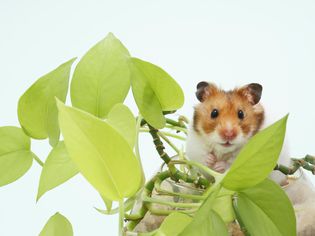
How to Care for a Pet Syrian Hamster
The Syrian hamster, also known as the golden hamster, is among the most popular choices for small p...
Read More →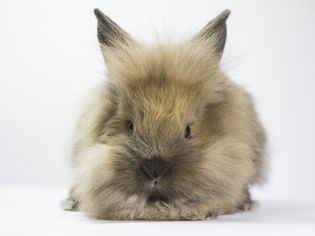
Dealing With Obesity in Rabbits
Obesity is a problem no matter what species you are, including rabbits. Just like in humans, dogs, ...
Read More →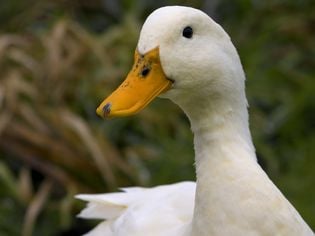
150 Fun and Unique Duck Names for Your Feathered Companion
Naming your pet duck is a fun experience, whether you have one duck, a pair, or an entire flock. A ...
Read More →
Comments on "What Do Mice Eat?" :